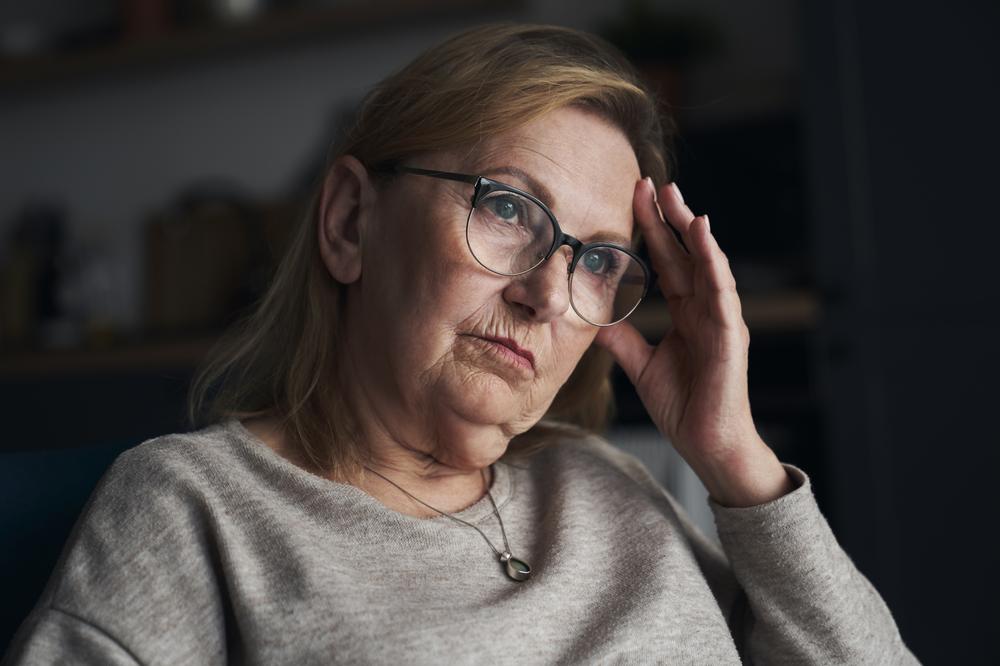Menopause is a phenomenon that refers to the time in a woman’s life when her reproductive hormones decline and her menstrual cycles end. More specifically, this occurs around 12 months after a woman last experiences a period. Menopause is known to cause a variety of symptoms, including hot flashes, trouble sleeping and even depression.
There is a link between menopause and the symptoms of depression that some women may experience in their lifetimes. Nearly 40% of all menopausal women will go on to develop depression symptoms. Do you think you may be experiencing depression as a result of your menopause? You can read up more on the relationship between the two here and what treatments can help.
What are some of the top symptoms of depression?
Many depression symptoms can become present in someone experiencing menopause. Have you experienced several of these symptoms for most of the day over a period of two weeks? It’s time to reach out to a medical professional who can help.
- Recurring feelings of sadness or emptiness.
- Recurring feelings of hopelessness.
- Anxiety or irritability.
- Feelings of guilt.
- Decreased interest in regular activities.
- Persistent fatigue.
- Restlessness.
- Persistent brain fog or slowed thinking.
- Changes in sleep patterns.
- Changes in eating patterns.
- Aches and pains in the body.
How can menopause and depression be related to each other?
Menopause may exacerbate the symptoms of depression. The aging process brings on changes in hormone levels leading up to menopause, called perimenopause. The hormones that decrease during perimenopause include estrogen, progesterone and even serotonin. The decrease in hormone levels can lead a person to develop depression symptoms. Women who have a history of depression or depressive episodes have a higher chance of being affected by these hormone changes. They may experience depression during perimenopause and several years after menopause.
Another factor that may cause depression symptoms in menopausal women is trouble sleeping. Many women going through the stages of menopause experience hot flashes. These hot flashes often disrupt sleep. Prolonged periods of poor-quality sleep can contribute to depression symptoms, which may be relevant for many menopausal women.
What treatments may help someone with menopause and depression?
Someone with depression symptoms and menopause may benefit from several treatment options. Some of these treatment options include:
- Antidepressants — Antidepressants may relieve many of the symptoms of depression that affect women going through menopause, like low mood and poor sleep. But did you know that they can also be used to treat hot flashes? Certain types of antidepressants, like selective serotonin reuptake inhibitors (SSRIs), are often used to treat hot flashes during menopause.
- Psychotherapy — Psychotherapy is another popular option for women experiencing depression symptoms brought on by menopause. Psychotherapy, also known as talk therapy, can provide relief to those experiencing depression; it helps patients learn to recognize negative thought patterns and beliefs and transform them into coping skills.
- Transcranial magnetic stimulation (TMS) therapy — Transcranial magnetic stimulation therapy is another treatment method that may provide relief to women who experience depression brought on by menopausal changes. This treatment method is ideal for people who have treatment-resistant depression. During a TMS session, pulses of magnetic energy are delivered to the areas of the brain involved in mood regulation. TMS therapy aims to stimulate and rewire the nerve cells connected to the release of chemicals like serotonin, norepinephrine and dopamine.
- Esketamine therapy — Esketamine therapy, also referred to by the brand name Spravato, is an FDA-approved self-administered nasal inhalant. It should be used in conjunction with oral antidepressants. It’s designed to relieve many of the symptoms of depression, including sadness, irritability and fatigue. Spravato treatments are effective for treating depression in a way that’s different from TMS and traditional antidepressants. Spravato targets the NMDA receptor.
Active Path Mental Health can provide you with treatment for your depression symptoms
We understand how significant of an impact depression can have on your life. It can leave you feeling overwhelmed, confused and out of control. Depression is known to affect your ability to function daily, your interpersonal relationships and your quality of life. Treatment from our Active Path Mental Health team can help you achieve greater control over your depression symptoms brought on by menopause. We’ll help you begin experiencing a better quality of life.
Active Path Mental Health is proud to provide treatment from multiple locations. We provide treatment in both Oregon and Washington. The team members at each one of our locations are dedicated to helping patients recover from their mental health conditions. If you’re experiencing depression, we’d like to help you. But don’t just take it from us, take it from our patient reviews.
Contact our team today for more information or to schedule an initial appointment.




